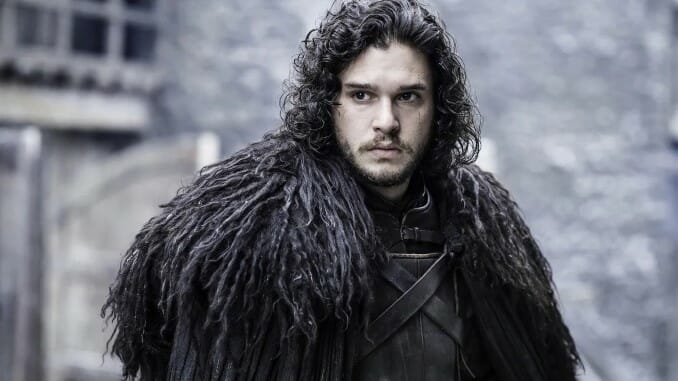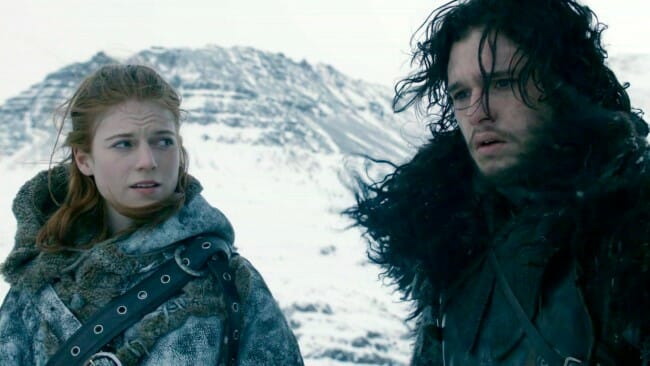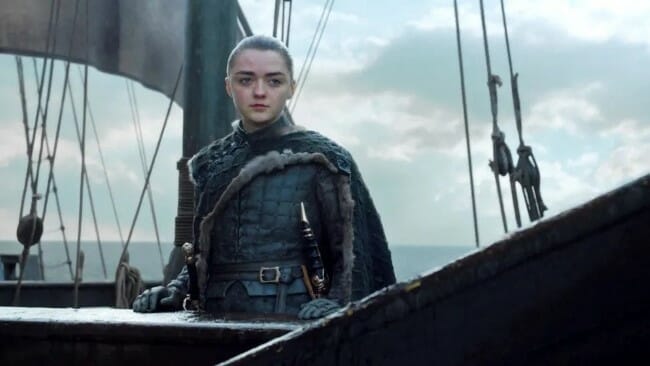Could a Jon Snow Series on HBO Reek Any More Strongly of Desperation?
Photos via HBO
Let me make one thing clear: I am by no means about to sit here and defend the ending of Game of Thrones. The rushed, nonsensical hurtle toward the finish of HBO’s iconic fantasy series—which had long since left the published material from author George R.R. Martin behind—managed to dull almost every fan’s enthusiasm for what had begun as one of the most widely beloved and hotly debated series of the Prestige TV era, going out with a whimper that began with a muddy, incomprehensible battle against the White Walkers and ended with the lamest possible rationalization for why Bran Stark, of all people, should sit on the new throne of Westeros. What Game of Thrones’ critical and popular implosion accomplished is honestly impressive in its own way. Do you even realize how difficult it is to incinerate that much good will, accrued over the course of six or seven quality seasons of TV? The conclusion of GoT didn’t even need to be particularly ambitious; it simply would have needed to be semi-sensible in order for the vast majority of viewers to accept it. Let there be no doubt that Benioff and Weiss completely failed at that task.
With that said, however… Game of Thrones did, in fact, end. A bad ending is still an ending, and short of rewriting and reshooting an alternative Season 8, there’s nothing that can be done about that now. The disappointing fan reaction isn’t something that can simply be mended. Do you want to know another thing that stands zero chance of somehow repairing fondness for how the series concluded? A Jon Snow sequel series on HBO, news of which broke this morning.
A Jon Snow follow-up series will no doubt be pitched by both HBO and the more dyed-in-the-wool defenders of the series as some kind of opportunity to right whatever perceived wrongs exist with Game of Thrones’ surviving characters. Like Disney+’s Obi-Wan Kenobi, it’s a move that exists simply to allow a popular character and performer an opportunity to reappear in their own vehicle, but the reality here is that a Jon Snow series isn’t truly likely to offer many promising opportunities for either the fans or the characters. Perhaps there could be a few interesting stories to be told north of The Wall, where Jon was traipsing as GoT came to an end, but do you really believe that HBO would greenlight a Jon Snow series with no intent to rope all the rest of Westeros back into it? An intimate series north of The Wall might have some promise, but we have to remember who’s producing this thing: The same network embroiled in a concerted effort to wring an absurd amount of disparate, GoT-related content out of its upcoming schedule. We’re talking about a network with eight different series at various stages of production, including House of the Dragon, 10,000 Ships (aka Nymeria), 9 Voyages (aka The Sea Snake), Dunk and Egg, and no fewer than three different animated prequel projects. They are not in the business of keeping things “small and intimate.”
The truth is that the actual outcome of a Jon Snow series will almost certainly be to further disparage the disappointment of Game of Thrones’ conclusion, while simultaneously highlighting HBO’s creative bankruptcy and crippling overreliance on what has become a withered piece of IP.
 This might be interesting to revisit, if she wasn’t dead … and Jon hadn’t subsequently fallen in love with his own aunt.
This might be interesting to revisit, if she wasn’t dead … and Jon hadn’t subsequently fallen in love with his own aunt.
This is the very essence of the problem that exists in trying to write and produce follow-ups to the conclusion of a story that was already epic in scope. It’s the problem faced by writers and networks when the existence of such a story is mandated by financial necessity, rather than genuine inspiration. As it turns out, “because there’s money to be made” is actually a pretty shitty rationale for why a series should exist, and producing a sequel to an epic conclusion can really only serve to further muddy that conclusion.
Once again: I’m not claiming that Game of Thrones had a satisfying conclusion, but it was indeed the payoff to a story of epic scope. I’m talking the dictionary definition of “epic” here: The final season of Game of Thrones saw the long-prophesized return of a world-devouring threat in the form of the White Walkers and the Night King, effectively paying off everything that had happened in Westeros for the last 8,000 years since the White Walkers were first driven back during the Long Night. Countless generations of families and dynasties spilled their blood over the centuries, and all the twisted machinations of power and prophecy led inexorably to this conclusion. The destruction of the White Walkers and the Iron Throne is simply a logical ending place for a story—literally any dramatist could look at these events and perceive it as an ending.
Which is to say: This is not a good place to serve as a beginning of a new story for one of the previous story’s heroes such as Jon Snow, particularly not a story with any grand ambitions. What great challenge or threat could Jon possibly face out beyond The Wall, that would not pale in comparison with the historical importance of the Night King’s invasion? There’s no beast out there that represents a greater existential threat than the one he’s already faced. This is the reason why we typically stop following a story when it has its grand, cathartic ending—to keep following the more mundane adventures of the hero at that point would only be a letdown. If the Jon Snow series attempts to present some other challenge for him as being on par with the ones he’s already faced—over 8 seasons of prestige TV—it would only serve to undermine the seriousness of what he’s already been through. The best advice would be to urge the writers to go small—to let Snow face a much more self-contained problem—but I can’t bring myself to believe they’d ever do that.
No, it seems much more likely that a Jon Snow series would instead be a vehicle to shoehorn in as many of the other “legacy characters”—as we must now refer to them, like this is The Force Awakens or Jurassic World Dominion—into the story, under the pretense that “fans want to see them.” Naturally, this would likely retcon many endings from Game of Thrones, in the name of stretching out the Jon Snow series for a few seasons. Can you not picture the network exec salivating at the idea of Jon interacting with Arya Stark again on his own series? Never mind the fact that the ending of Game of Thrones literally shows her sailing away into the West to explore strange new lands—that will no doubt be sacrificed to bring her back into the fold, if it means a fleeting ratings bump for Jon Snow. Hell, while we’re at it, wouldn’t that set-up for Arya, as an intrepid explorer sailing off the edge of the map, be far better source material for a new series than continuing to follow mopey old Jon Snow as he returns to tread the same paths we’ve already seen multiple times before?
 “On second thought, maybe I should turn this ship around to cameo in Jon’s series?”
“On second thought, maybe I should turn this ship around to cameo in Jon’s series?”
The whole thing smacks of desperation, an attempt to recreate at least one series in the Game of Thrones universe (among eight!) that could be buoyed by familiar characters, rather than needing to create a new setting and cast of new faces. Perhaps the Jon Snow series is HBO’s admission that that its plans for a wider George R.R. Martin universe have been underwhelming, and perhaps this announcement will precede the cancellation of several of the other planned spin-offs. Otherwise, won’t we be looking at a schedule that has at least one Game of Thrones show airing pretty much every day of the week? Do any of us believe there’s an audience out there that is so starving for GoT-tangential content, a few years after the series landed with a dull thud?
Read the room, HBO. Game of Thrones concluded in 2019, and its cultural cache was already utterly spent when it did. A Jon Snow series that attempts to inject stakes back into Westeros, following the vanquishing of an evil 8,000 years in the making isn’t the solution for a botched ending. The mistake is in thinking that any response will somehow fix what’s already been done.
Game of Thrones had a moment, and that moment has long since slipped away. A little bit of Snow isn’t about to bring it back.
Jim Vorel is a Paste staff writer and resident genre geek. You can follow him on Twitter for more film writing.
For all the latest TV news, reviews, lists and features, follow @Paste_TV.







































